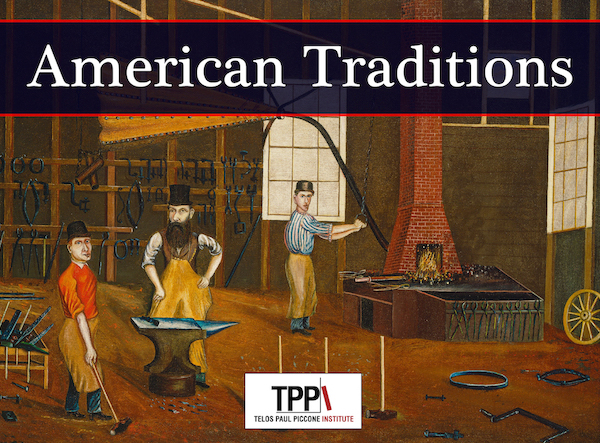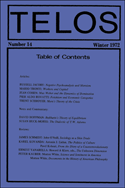I am a professor emeritus of political science at the University of Oregon, and I am an observant, progressive Jew. I appreciate the efforts of conservatives, some of whom have made valuable contributions to the Telos-Paul Piccone Institute’s Israel initiative, to expose antisemitism in my profession and among my students since October 7. I share their concern that anti-Zionism has become one plank in an anti-liberal, anti-capitalist, anti-American project characteristic of some segments of the contemporary left. It’s vital to bear in mind that Jews have thrived when liberal, American values and institutions have been strong.
Does this mean, as Bari Weiss counsels, that I should join Jews in a lockstep turn to the right? I think not. Twenty-five years ago, in Achieving Our Country, Richard Rorty challenged what he called the “cultural left” to suspend high theory, identity politics, and cultural revolution to attend instead to the economic distress of the many Americans left behind by neoliberalism. He challenged an increasingly anti-American left to build a left-wing patriotism. And he pointed to domestic historical resources to realize those aims in the work of Emerson, Whitman, and Dewey. Rorty feared the alternative to such pragmatic liberalism was an authoritarian demagogue, who would reverse the gains of identity politics and usher in an era of American fascism.


 Mario Tronti’s postscript to the second edition of his publication Operai e Capitale, published in Telos in 1972 as “Workers and Capital,” provides the reader with a summation of his thought on the development of the “mass worker,” presented through an analysis of notable labor struggles across the Western world. Tronti’s methodology, which he briefly explicates at the beginning of the piece, delineates certain historical workers’ struggles in order to examine “macroscopic groups of facts yet untouched by the critical consciousness of labor thought” (25). His purpose is to yield “an historical model, a privileged period of research” (25) so as to better analyze the emergence of the autonomy of the working class engaged in a dialectical struggle with capital.
Mario Tronti’s postscript to the second edition of his publication Operai e Capitale, published in Telos in 1972 as “Workers and Capital,” provides the reader with a summation of his thought on the development of the “mass worker,” presented through an analysis of notable labor struggles across the Western world. Tronti’s methodology, which he briefly explicates at the beginning of the piece, delineates certain historical workers’ struggles in order to examine “macroscopic groups of facts yet untouched by the critical consciousness of labor thought” (25). His purpose is to yield “an historical model, a privileged period of research” (25) so as to better analyze the emergence of the autonomy of the working class engaged in a dialectical struggle with capital. 

